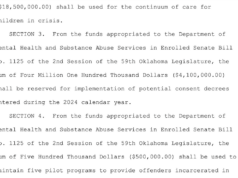How does one write about feelings of inadequacy? To expose the most vulnerable self feels like social suicide. Every day on social media, we measure and parse out pieces of ourselves to friends, family and strangers. Recently, I posted a status update bemoaning my imposter syndrome. I (mostly rhetorically) pondered what it would be like to not suffer these feelings.
And a surprising thing happened.
An intro to imposter phenomenon
Back in 1978, two psychologists identified and coined the term “imposter syndrome” (although now they prefer it to be termed “imposter phenomenon”). In Pauline R. Clance and Susanne A. Imes’ original paper, high-achieving women were thought to be the only social group with imposter phenomenon. Over the last four decades, however, as more research delves into this topic, imposter feelings have been found in all demographics, from entry-level employees to the heads of major companies.
Imposter phenomenon (IP) comes in many different forms and feelings (mostly based on personal definitions of anxiety), but they all have one thing in common: A (generally high-achieving) person believes themselves a fraud. They have a distinct fear of failure and a belief that, as they accomplish more and more, the likelihood of being “found out” escalates. As Jasmine Vergauwe and her colleagues have recently identified, there are certain personality traits that folks with imposter feelings exhibit. The two most common include neuroticism and perfectionism, as well as a healthy dose of an inability to correctly evaluate self worth.
Situations that elucidate IP feelings
Imposter feelings can take place about a variety of things or situations and are not just limited to work or academia. For instance, the following is a(n incomplete) list of situations that increase my anxiety, make me feel unworthy or generally create feelings of fraudulence:
- being asked to write for NonDoc
- writing for NonDoc
- writing for anything
- starting my new company
- applying for design projects
- applying for jobs
- interviewing for jobs
- getting new jobs
- asking for a raise
- when someone gives me compliments
- any kind of accolades
- starting my fairy tale book
- working on my dreams (in general)
While studies on IP have highlighted the feelings in every demographic, it appears more in high-achieving women, ethnic/racial minorities and lower-class individuals. Being underrepresented in your field, whether racially, gendered or otherwise, greatly increases your chances of feeling like a fraud.
The belief is that, because they must already work so hard to just get in the room, marginalized people discount their achievements and cannot internalize their successes. The high levels of neuroticism in their personalities mean that they constantly overthink each and every success, viewing them more as luck, chance or charm rather than skill. From personal experience, I can tell you that when society declares you unworthy, less intelligent and incapable, internalizing these thoughts while discrediting your achievements can be disabling.
Fighting the IP impulse
So, how does one combat these feelings? Even in the original article (which I can’t find for free and must purchase¹), ways for combating IP were addressed. I discovered one of these first-hand.
The amazing thing that I mentioned above? The lede I dropped? People responded to my status update with personal tales of imposter feelings. Friends and family that I admire, respect and adore all wrote in about their own fraudulent feelings. People whose achievements I have followed and used as a basis for my own ALSO FELT LIKE FRAUDS.
Simply by reaching out and understanding that I wasn’t the only one, that my heroes and heroines also felt like frauds, eased my worry. You can only do what you can do, and if these people could overcome these feelings to continue their greatness, I could, too.
Looking for more ways to combat imposter phenomenon? Click here. Or here. Or here, if you like reading.
- Seriously, America, if you want to raise a country that isn’t anti-science and anti-intellectual, why THE FUCK are all your scientific articles, especially ones paid for by government grants or public research institutions, not available FOR FREE?!






















